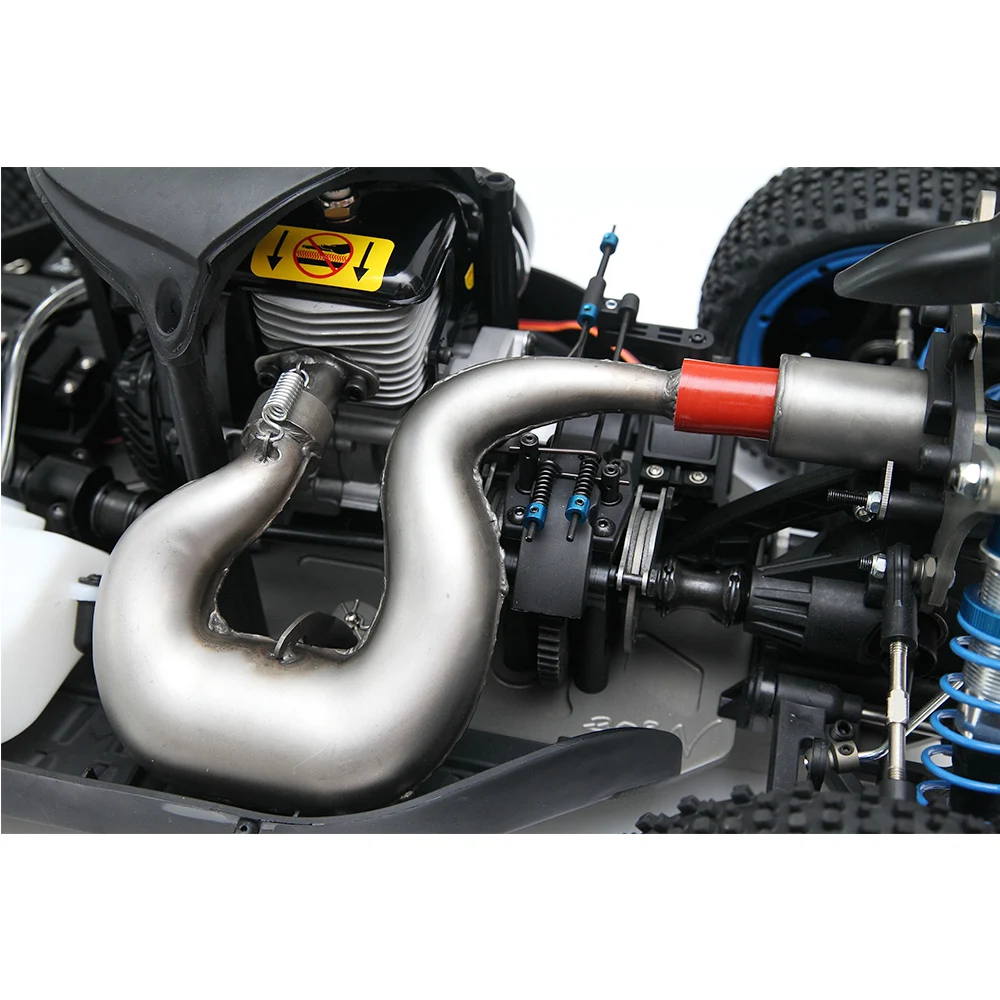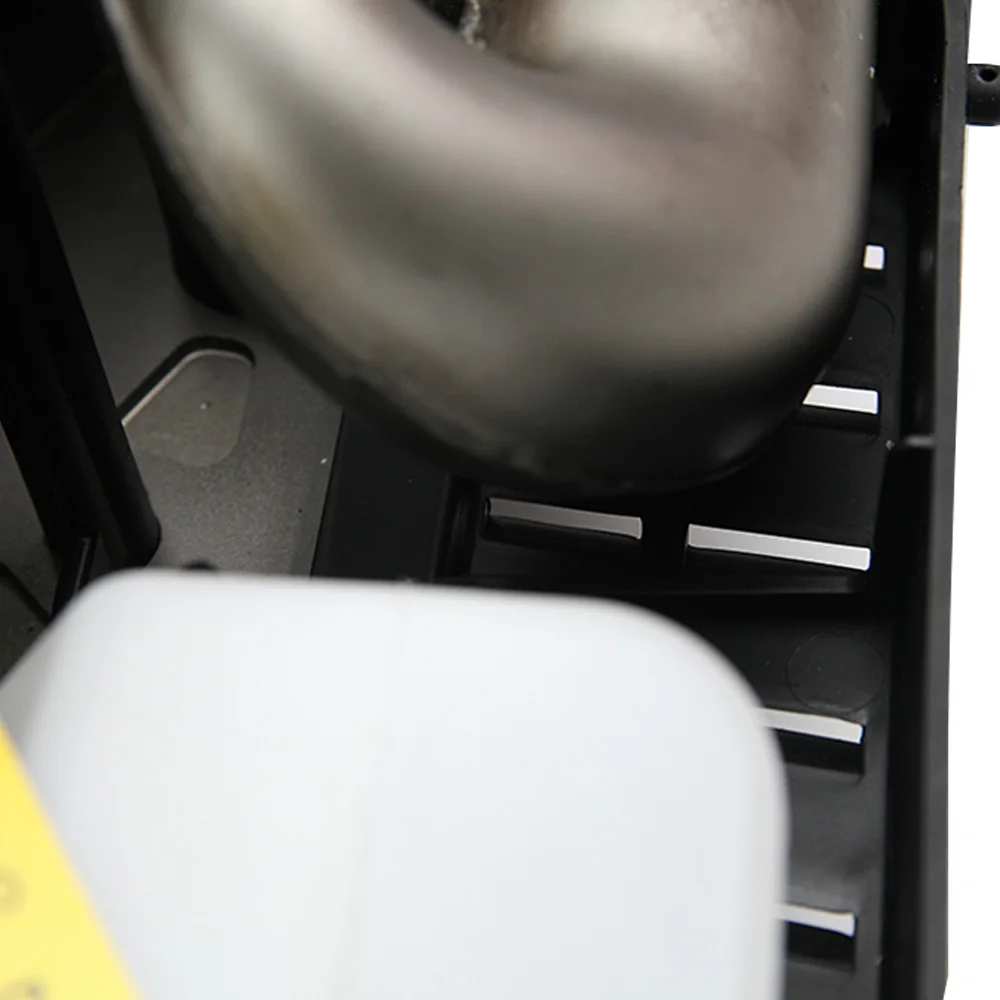DTT 1/5 Gasoline Remote Control Car BAJA 5B Rtr
30°N North Latitude 1:5 gasoline remote control model car BWS-5B race racing off-road vehicle
Ratio: 1/5
Length X width X height: 800mmX450mmX315mm
Net weight: 14.8kg
Wheelbase: 560mm
Track: 375mm (front) / 370mm (rear)
Remote control: BER-V3
Carburetor: Hua Boluo 997
Engine: North Latitude 29cc four-point fixed engine
Fuel tank capacity: 750ml
Drive mode: four-wheel drive
Steering gear: throttle 48kg, steering 48kg Note: up to 62kg under 2s lithium battery
Damping system: front and rear hydraulic adjustable shock absorption
Shock absorption support: 6061T6 high-strength aviation aluminum alloy molding
Chassis: 6061T6 high-strength aviation aluminum alloy CNC one-time forming large bottom plate
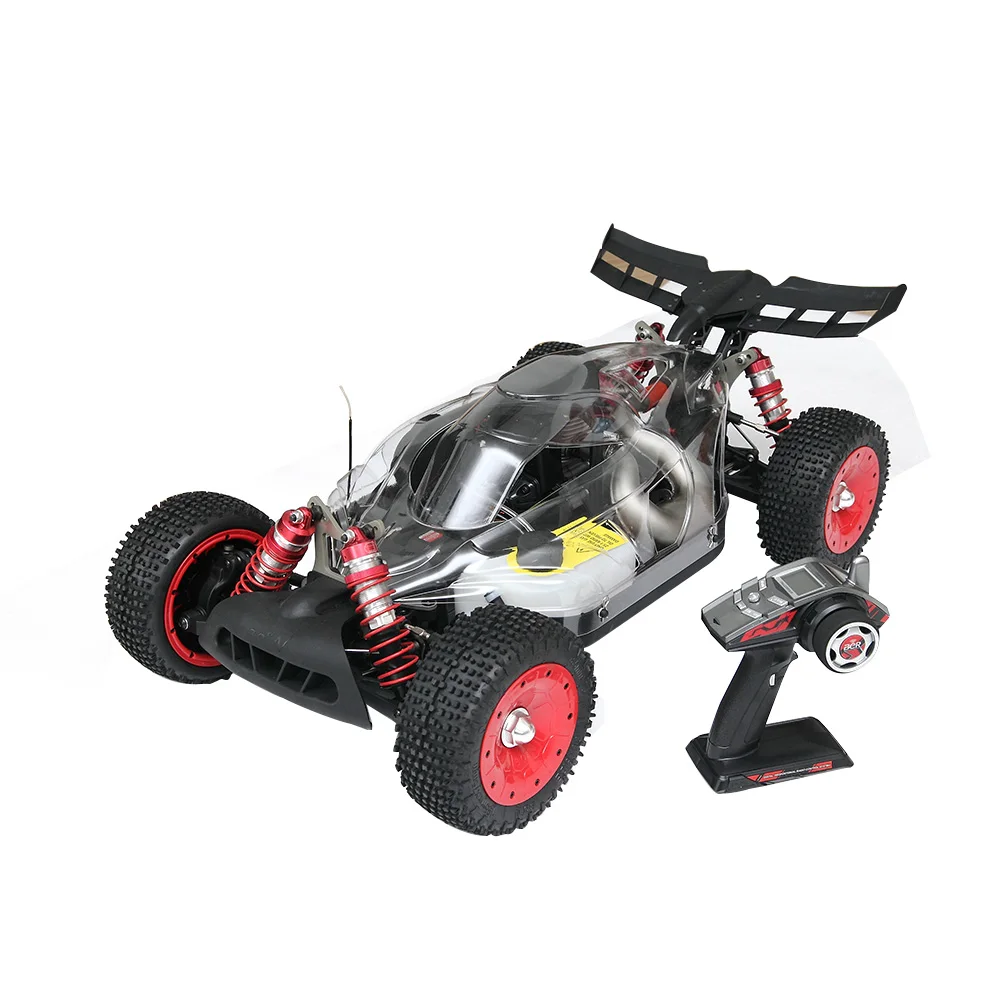
Selling Point1
1. Streamlined car shell: The streamline design makes the vehicle reduce wind resistance and improve grip. Multiple inlets of the car shell can effectively reduce the exhaust pipe temperature and meet the air filter intake
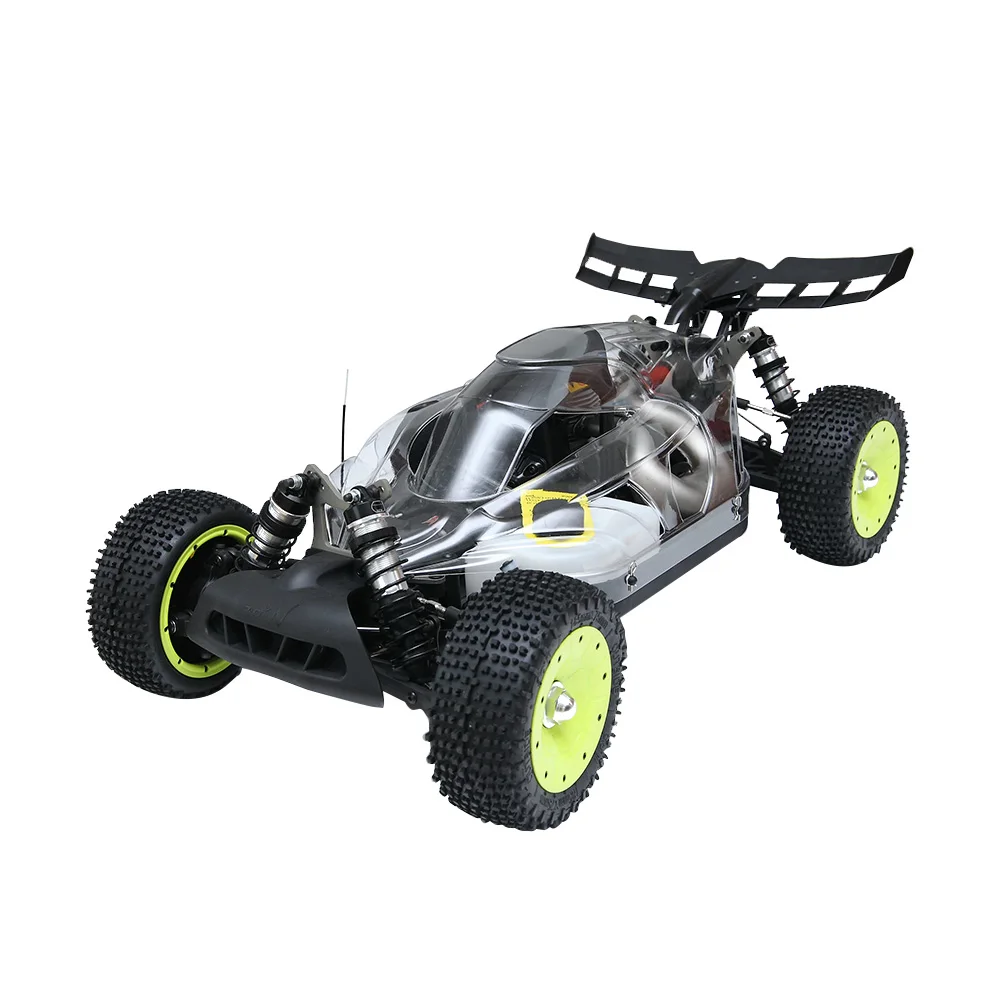
Selling Point2
2. Whale tail: According to the principle of wind movement, with the streamlined car shell. When the vehicle is running, the tail will automatically adjust the angle according to the speed of the vehicle, so that the vehicle can get more grip when cornering at high speed.
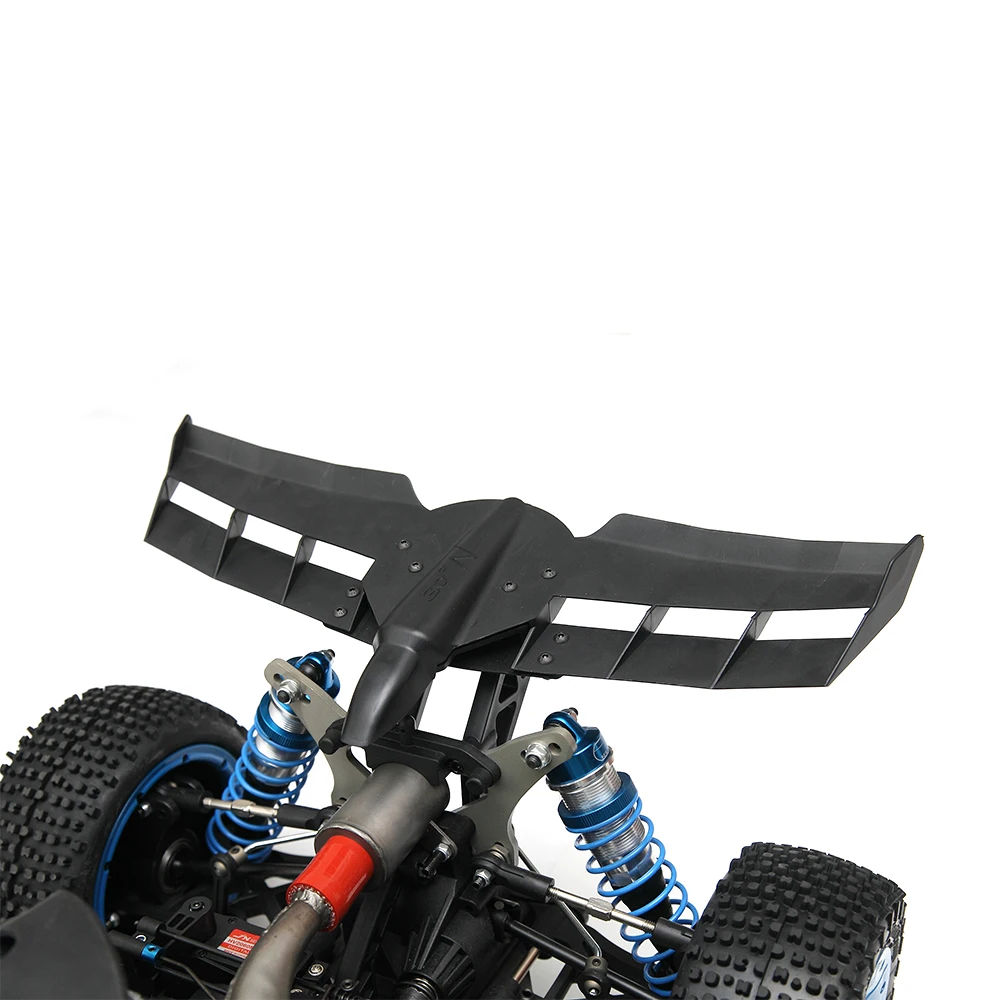
Selling Point3
3. Pig nose anti-collision: When the vehicle has a frontal impact, the three nostrils of the pig's nose can absorb more impact energy, thus better playing the collision function.
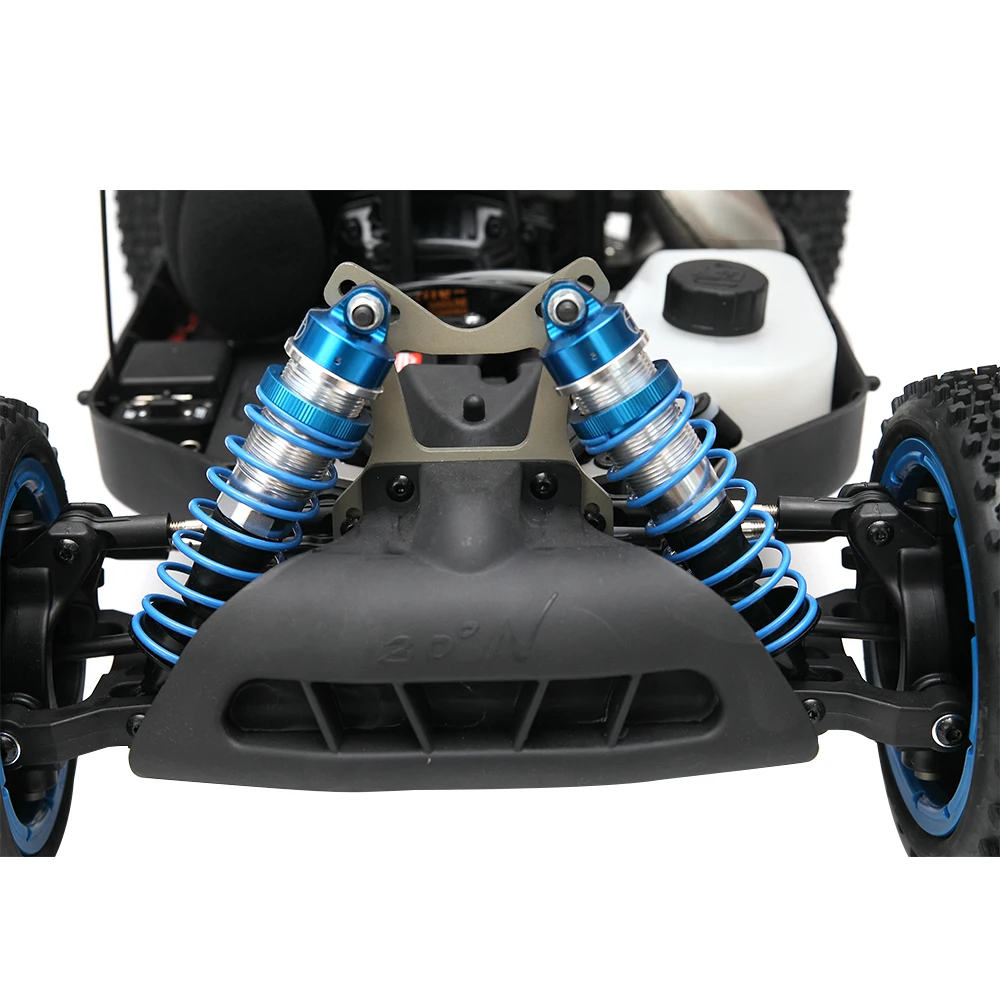
Selling Point4
4. Gold triangle protection bracket: The top of the gold triangle is designed with double layer material, and the inner layer is made of hard nylon material to effectively protect the engine. The outer layer is a soft elastomer material that supports the top of the car shell. The car adopts no roll cage design, and the golden triangle is installed at the highest point of the vehicle to protect the engine and the shell from damage during tumbling.
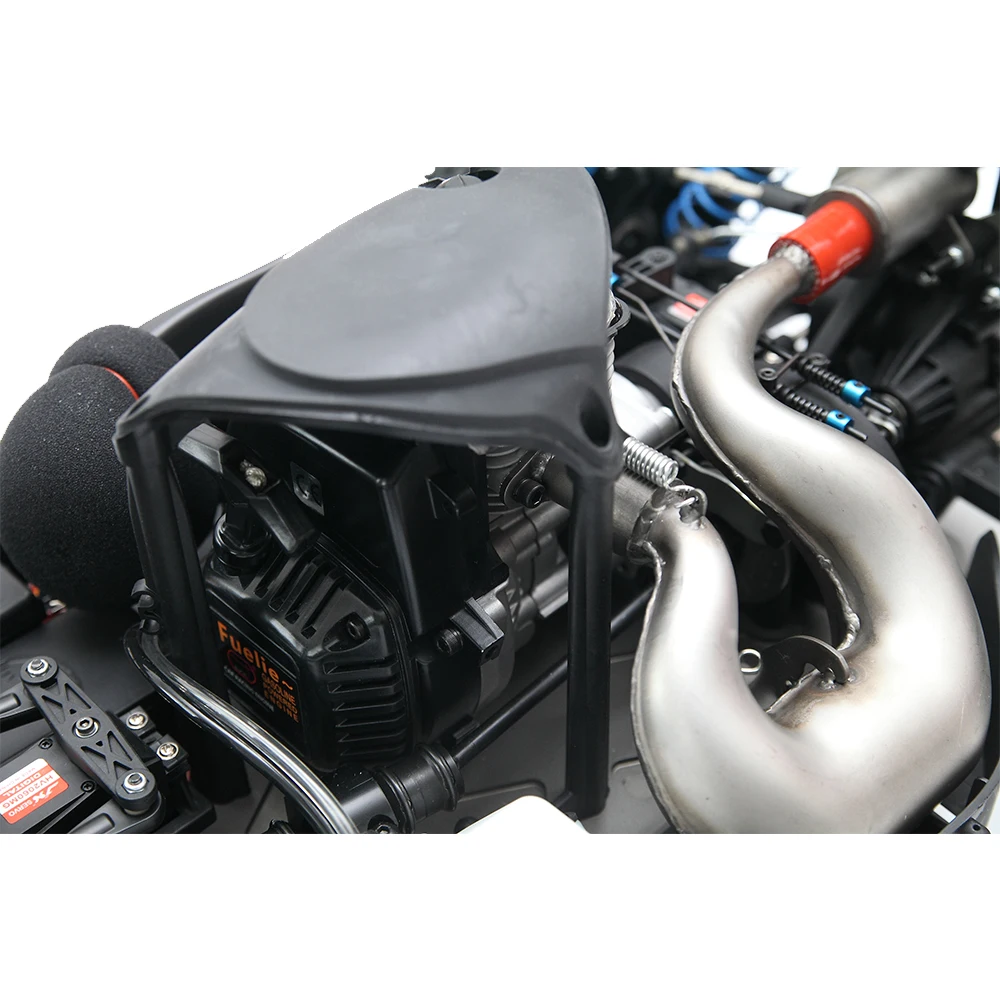
Selling Point5
5. Upright engine: combined with the working principle of engine cooling, the BWS-5B engine adopts the forward mounting method of the hand puller to minimize the heat dissipation problem of the engine.
